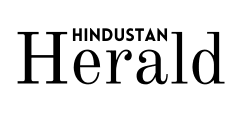According to sources, the Indian government has taken steps to block tweets sharing a BBC documentary that is critical of Prime Minister Narendra Modi. The documentary, which is reportedly based on an investigation into Modi’s role in the 2002 Gujarat riots, has sparked controversy and debate in India. The government’s decision to block tweets sharing the documentary has been met with criticism from some who argue that it is a violation of freedom of expression and an attempt to suppress dissent.
The Indian government’s decision to block tweets sharing the BBC documentary has raised concerns about freedom of speech and the government’s willingness to censor critical content. The move has been criticized by some as an attempt to control the narrative and silence dissenting voices, while others have defended the decision as necessary to maintain social harmony and prevent the spread of misinformation. The documentary, which is based on an investigation into Modi’s role in the 2002 Gujarat riots, has sparked intense debate and discussion within India, with many calling for an open and transparent investigation into the events of that time. Overall, the government’s decision to block tweets sharing the documentary has sparked a heated conversation about censorship, freedom of expression, and the role of the media in a democratic society.
The BBC documentary in question has not been officially released yet and its contents are not yet verified. However, it is reported that the documentary investigates the role of Prime Minister Modi and his government in the 2002 Gujarat riots, in which thousands of people, mostly Muslims, were killed. The riots are considered one of the worst communal violence in India’s recent history and have been a contentious issue in the country, with many accusing Modi and his government of not doing enough to prevent the violence and of being complicit in it. The government’s decision to block tweets sharing the documentary has been seen as an attempt to prevent the public from viewing the contents and forming their own opinions about it.
Furthermore, the move has sparked a debate about the government’s power to control what people see and hear online and the extent to which it is acceptable for a government to censor content it deems inappropriate or critical. The Indian government’s decision to block tweets sharing the BBC documentary has raised important questions about freedom of expression, censorship, and the role of the government in controlling the narrative.
It should be noted that India is not the only country where the government is known to control the narrative by blocking or censoring information that it deems inappropriate or critical, but it is important to evaluate whether this is something that should be accepted in a democratic society.
The Hindustan Herald Is Your Source For The Latest In Business, Entertainment, Lifestyle, Breaking News, And Other News. Please Follow Us On Facebook, Instagram, Twitter, And LinkedIn To Receive Instantaneous Updates. Also, Don’t Forget To Subscribe to Our Telegram Channel @heraldhindustan














